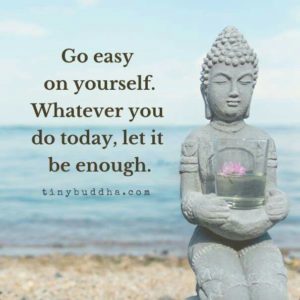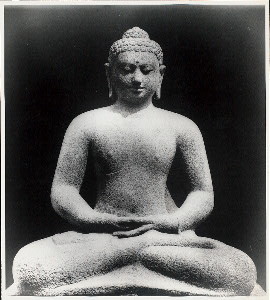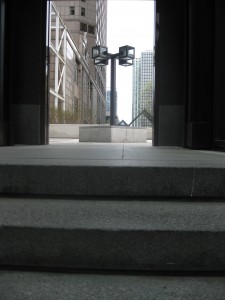This article originally appeared in The Huffington Post

A few months ago, I attended a meeting at the Polsky Center at the University of Chicago. It was a gathering of people from the University and entrepreneurs from the community. We were there to talk about the development of a new center for innovation.
During the lunch break, I spoke with an entrepreneur who runs a business creating healthy skincare products. She told me about her dream of outreach to the community in terms of training local people in the manufacturing of her product.
She also shared her story of how she started her business. Several years ago, when her son was young, he had severe eczema. To address his skin condition, she started experimenting with different lotions and oils and crafting them from scratch at home. At the same time, she was diagnosed with breast cancer.
These two events led her to make a radical shift in her life. She left her corporate job and created a business around manufacturing and selling the healthy skincare products she had created for her son.
When I expressed my awe about her story, she said, “Oh, it just happened.” As our conversation evolved, I asked her if she was interested in sharing how she made that shift from the corporate world to being an entrepreneur and again, she repeated, “It just happened.”
I left the conversation fully impressed with all that she had accomplished, all that she had planned, and completely amazed by her humility. But it was more than humility, I think. Like many of us, she was not recognizing the amazing things she had accomplished.
She had done so much, achieved and created and succeeded and I was in awe of her. It made me think about how often we focus on what we have not done rather than what we have accomplished. We come to the end of the day and see the list of things undone and focus on those rather than seeing: “Wow, there were so many things that I did today. I did X, Y, Z, . . . And I did them with calmness and compassion and awareness.”
I am much happier with my day when I take note of what I have done and achieved that day, even the little things. Focusing on the good, on what’s done, helps me feel peaceful and whole.
As we launch into this new year and pause to reflect on the one completed, let’s remember all that we have done and all that we continue to do each day – even the little things, even the things that we do with ease. Those things count and deserve celebration because you are enough. You are whole and complete right now, just as you are.


 Many people wonder, why should I meditate? What are the benefits? To me, the short answer is: “Because it works.” Then, of course, the next questions are: “How does it work? How will it help?” Simply put, meditation works by increasing awareness. To be mindful is to be aware of one’s experiences, both internal and external experiences. Mindfulness-based meditation helps one to become aware. By being aware, we are able to make better decisions, manage our mood, and activate more parts of our brain.
Many people wonder, why should I meditate? What are the benefits? To me, the short answer is: “Because it works.” Then, of course, the next questions are: “How does it work? How will it help?” Simply put, meditation works by increasing awareness. To be mindful is to be aware of one’s experiences, both internal and external experiences. Mindfulness-based meditation helps one to become aware. By being aware, we are able to make better decisions, manage our mood, and activate more parts of our brain. Sometimes I wake up at 3:30 a.m. and can’t fall back to sleep. Does this type of insomnia ever happen to you? Is it a crisis for you? Do you lie in bed waiting for the alarm to go off or the sun to come up? Are your first thoughts? “I’m awake already??!! This is going to ruin my day.”
Sometimes I wake up at 3:30 a.m. and can’t fall back to sleep. Does this type of insomnia ever happen to you? Is it a crisis for you? Do you lie in bed waiting for the alarm to go off or the sun to come up? Are your first thoughts? “I’m awake already??!! This is going to ruin my day.” met me in the waiting room and asked how things were going during those first few weeks of classes and settling back into the routine of college life. I don’t recall what I said to her, but I do remember very clearly what she said to me, “Do you know how many times you just said, ‘should’?” I was startled by her question, but startled in a good way. I left the counseling center a lot calmer, quieter and reflecting on how many times I say, “should.”
met me in the waiting room and asked how things were going during those first few weeks of classes and settling back into the routine of college life. I don’t recall what I said to her, but I do remember very clearly what she said to me, “Do you know how many times you just said, ‘should’?” I was startled by her question, but startled in a good way. I left the counseling center a lot calmer, quieter and reflecting on how many times I say, “should.”